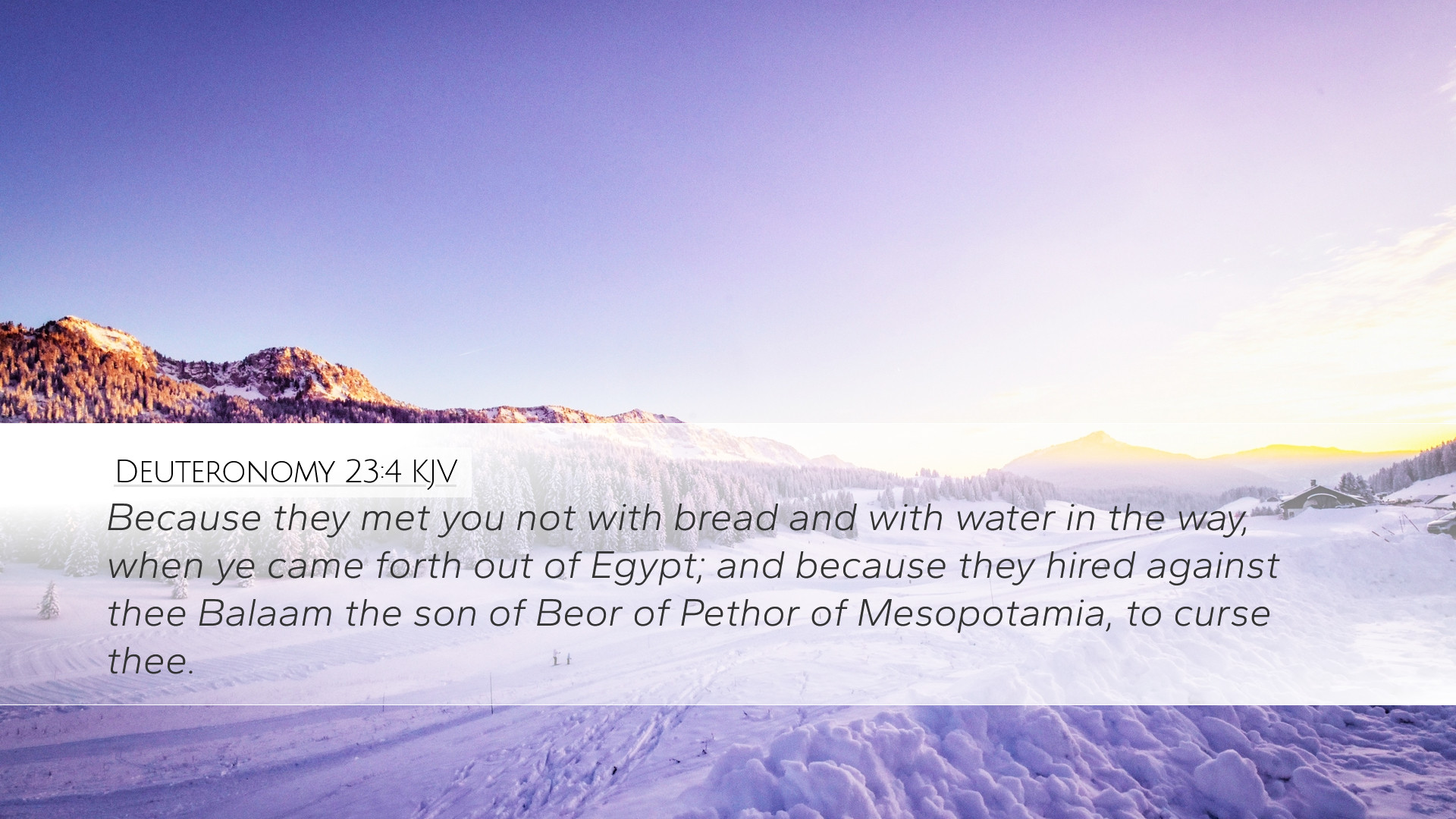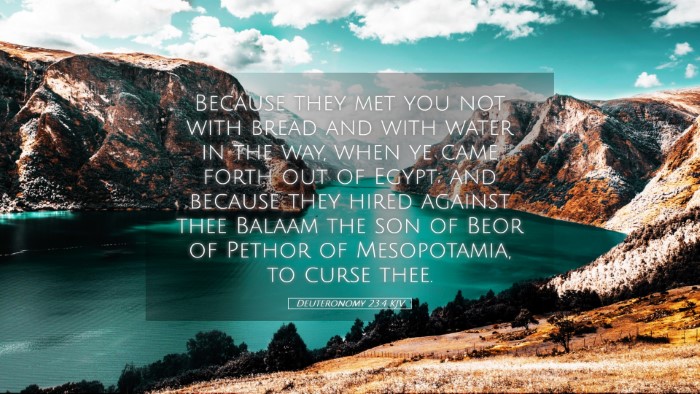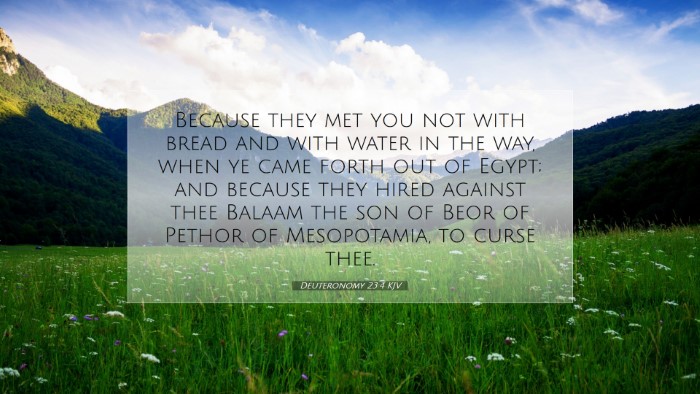Commentary on Deuteronomy 23:4
Bible Verse: "Because they met you not with bread and with water in the way, when you came forth out of Egypt; and because they hired against thee Balaam the son of Beor from Pethor of Mesopotamia, to curse thee." (Deuteronomy 23:4, KJV)
Introduction
Deuteronomy 23:4 serves as a reminder of Israel's complex history with neighboring nations, particularly the Moabites and Ammonites. This verse encapsulates the consequences of their unkindness and hostility towards Israel during the Exodus. The insights gathered from the prominent public domain commentaries provide a deeper understanding of the implications of this verse for Israel and its overarching theological significance.
Historical Context
The backdrop of this verse is crucial for understanding its implications. The Israelites had just escaped slavery in Egypt and were journeying towards the Promised Land. Their experiences with neighboring peoples, particularly with the Moabites, formed a significant part of their collective memory. As noted in the commentaries:
- Matthew Henry: Emphasizes the ingratitude of the Moabites, who failed to extend hospitality to the Israelites despite their dire circumstances.
- Albert Barnes: Points out the historical context, indicating that the Moabites and Ammonites were descendants of Lot. Their refusal to assist the Israelites reflects a deeper animosity rooted in their shared ancestry.
- Adam Clarke: Highlights the tribal affiliations and the covenantal nature of Israel's relationship with God, suggesting that the actions of the Moabites were not merely personal but had divine ramifications.
Theological Implications
The core theological message of this verse conveys God's justice and the broader theme of retribution. The hostility shown by the Moabites not only impacted their relationship with Israel but also elicited a response from God. A deeper examination reveals:
- Rejection of Enmity: The refusal of the Moabites to offer aid is depicted as a malicious act, misunderstanding hospitality as a fundamental expression of humanity.
- Spiritual Consequences: Hiring Balaam to curse Israel highlights the severe moral and spiritual failures of the Moabites. It showcases how spiritual leaders can mislead and how the pursuit of profit over principle corrupts.
- God's Sovereignty: Despite the attempts of Balaam to curse Israel, God’s protective will prevails, demonstrating divine sovereignty amidst opposition.
Insights from Commentaries
Matthew Henry's Commentary: Henry elaborates on the importance of hospitality in ancient Near Eastern cultures. He notes that withholding bread and water was not just a failure of kindness but a calculated act of enmity. The verse serves as a reminder that God holds nations accountable for their actions, especially concerning His chosen people.
Albert Barnes' Notes: Barnes underscores the strategic dimension of Balaam's actions, indicating that the Moabites sought to undermine Israel through spiritual means. This act reflects their unwillingness to confront Israel with justice and mercy.
Adam Clarke's Commentary: Clarke discusses the historical ramifications of these actions, asserting that Israel's struggles with the Moabites reflect broader struggles against spiritual and existential challenges. The Moabites’ choice to hire Balaam was a serious miscalculation since it placed them directly against God's plans for Israel.
Lessons for Today
For those engaged in pastoral ministry, academic study, or theological reflection, the lessons from Deuteronomy 23:4 extend beyond historical analysis:
- Emphasis on Hospitality: The verse reminds believers of the importance of extending hospitality and kindness. In a world marked by division, the act of serving others reflects God’s love.
- Accountability in Relationships: Just as the Moabites faced consequences for their actions, individuals and communities must understand their responsibility to others, especially those in need.
- Understanding Spiritual Warfare: The narrative around Balaam shows the importance of spiritual discernment. Pastors and leaders must approach spiritual influences with caution and clarity.
Conclusion
In summary, Deuteronomy 23:4 offers profound insights into the relationship between Israel and the Moabites, emphasizing themes of accountability, the significance of hospitality, and the implications of spiritual leadership. By reflecting on the teachings of Matthew Henry, Albert Barnes, and Adam Clarke, we gain a holistic understanding of historical context while extracting timeless truths applicable for contemporary believers. This verse thus serves as both a warning and a call to reflect God's character in our lives and relationships.


